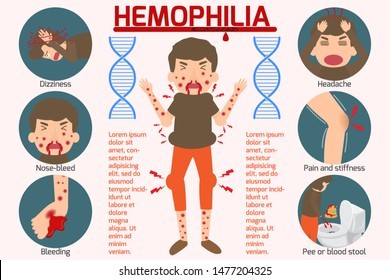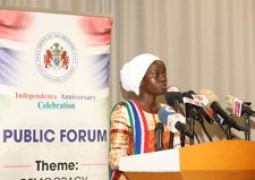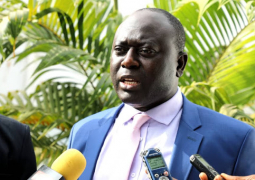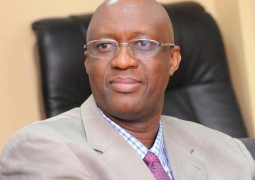
Growing concerns over the lack of adequate healthcare services and the shortage of trained medical professionals in rural Gambia took center stage at the Safe Motherhood and Hemophilia Foundation’s Family Day held at the Badala Park Hotel.
The event, which brought together patients, families, and health stakeholders, focused on the challenges faced by people living with hemophilia – a rare genetic bleeding disorder that requires specialised treatment and care.
Parents and caregivers from communities such as Farafenni, Bansang, and Kudang shared heart-wrenching stories of loss, frustration, and neglect. One grieving mother from Farafenni recounted how her daughter died due to a lack of specialised attention from a hematologist, despite her repeated pleas to hospital staff. Another parent, Ebrima Thorpe from Kudang, also mourned the death of his child who lived with hemophilia, citing poor access to medical services as a major factor.
“There is a clear shortage of healthcare personnel in these communities,” said a representative of the Foundation, calling on authorities to urgently address the gaps in medical expertise and infrastructure.
Parents lamented that hemophilia testing and treatment remain centralised in Banjul, where the only testing machine is located. Patients from rural regions must travel long distances often at great financial and emotional cost to access diagnosis and clotting factor medication. “Access to healthcare is extremely limited, and it’s putting lives at risk,” one parent said.
Hemophilia, a lifelong bleeding disorder caused by the lack of clotting factors in the blood, requires regular treatment and monitoring. Without adequate medical attention, patients risk prolonged bleeding, disability, or even death.
Mr. Vandy Jayah, president of the Safe Motherhood and Hemophilia Foundation, highlighted ongoing efforts to bridge the gaps in care. “We’re developing a patient ID system to help healthcare providers better manage cases and ensure timely treatment,” he explained. The Foundation has also launched a public awareness campaign to dispel misconceptions about the disease, which is often misdiagnosed due to limited training among health professionals.
“Hemophilia is real, and people are living with it,” Mr. Jayah stressed, urging both government and international partners to strengthen support for patients.
Josephine Touray, the Foundation’s Secretary-General, commended the progress made in recent years, noting that patients previously had to travel to Senegal for testing and treatment. “Thanks to the Foundation’s advocacy, a hemophilia testing laboratory has now been established in Banjul, giving patients access to local treatment options,” she said.
Touray also underscored the importance of public events like the Family Day in reducing stigma and creating safe spaces for children living with hemophilia to interact and feel supported. She added that the Foundation was founded by Mr. Jayah after he witnessed a severe bleeding case that inspired him to take action.
The Safe Motherhood and Hemophilia Foundation continues to partner with the Gambian government to improve the storage and management of medical supplies and ensure that patients receive free access to care. Touray reminded caregivers of essential safety precautions, such as regular monthly check-ups with hematologists and notifying doctors about the condition before any medical procedure.
Despite commendable progress, both Jayah and Touray agreed that much more needs to be done particularly in rural communities where medical facilities remain under-resourced and hemophilia awareness is limited.
“We have made progress, but there is still a long way to go,” Jayah concluded, reaffirming the Foundation’s commitment to ensuring that every Gambian living with hemophilia receives the care, support, and dignity they deserve.





